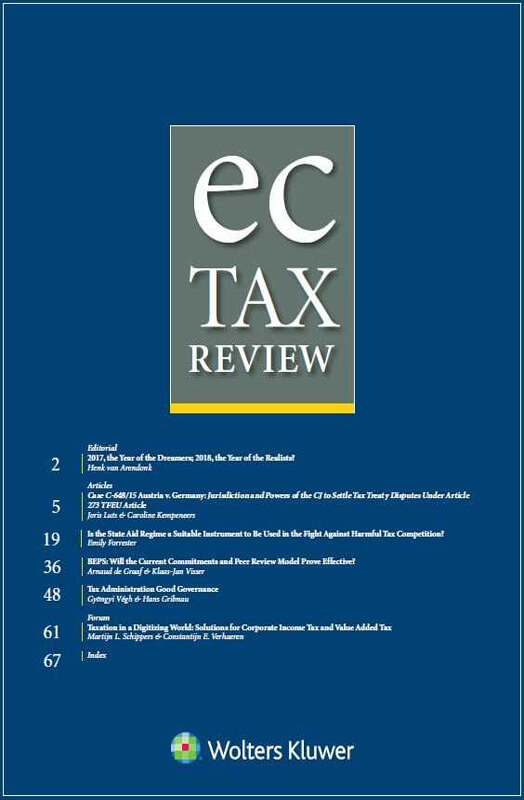Home > All journals > EC Tax Review > 26(2) >

$25.00 - Rental (PDF) *
$49.00 - Article (PDF) *
Rita de la Feria, Max Schofield
EC Tax Review
Volume 26, Issue 2 (2017) pp. 89 – 95
https://doi.org/10.54648/ecta2017010
Abstract
In late 2015, the European Commission announced a monumental U-turn on Value Added Tax rates policy. After decades of advocating the benefits of harmonization of VAT rates across the EU Member States, and after many failed legislative attempts at achieving it, the Commission declared its intention to do the opposite, namely to disharmonize VAT rates across Europe. The announcement was followed by a VAT Action Plan, and a public consultation on the reform of VAT rates, which, under the guise of modernization and consistency with the destination principle, presented two options for reform, both of which would give Member States further freedom and flexibility in the application of reduced rates. Against this background, the aim of this article is not to restate the benefits of VAT rate harmonization, but to assess whether the EU has legislative competence to approve disharmonizing VAT legislation. The article concludes that Article 113 TFEU could not be used as a legal basis for a Directive aimed at disharmonizing VAT rates, and that any such Directive, would lack legal basis and, consequently, be unlawful under the EU constitutional principle of conferral of powers.
Extract
